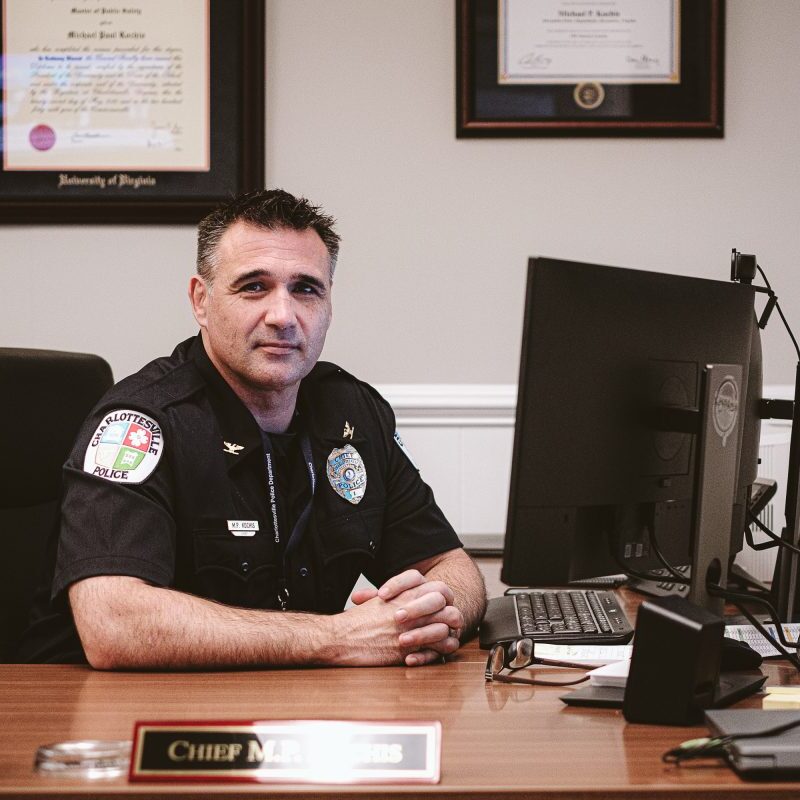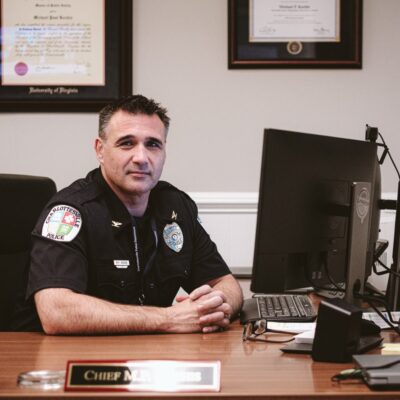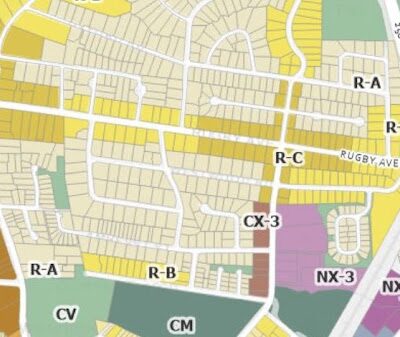A test to make the intersection of Rugby Avenue and Rose Hill Drive safer by installing four-way stop signs concluded this week with plastic bags coming off the old stoplights and the removal of the stop signs.
When the signs went up at the end of March, neighborhood website Nextdoor was abuzz with reports of motorists sailing through the intersection, oblivious to the stop signs. Flexible upright barriers were installed to block off right-turn lanes, leading to backups of traffic coming off the U.S. 250 Bypass.
After a community meeting May 29, city traffic engineers had the test results and resident input they needed: The stop signs were a no-go.
Around 75 people showed up for the meeting, “which was wonderful,” says Tim Motsch, city transportation project manager. “They gave us information and also highlighted that this was a sore topic.”
Putting the current, 30-plus-year-old lights back into operation is a temporary step, he says. “They can’t be modified to be [Americans with Disabilities Act] activated.” An intersection overhaul with new lights, ADA-compliant curbs, ramps, and crosswalks will cost approximately $530,000, and Motsch says funding from VDOT has been identified. “It’s going to be next year before construction begins.”
Not everyone hated the stop signs. “There are people who said, ‘I like it. I can cross now,’” says Motsch. But public comment favored a pedestrian-activated signal or a smart light, with little support for the stop signs as a permanent solution.
At the community meeting, resident Zac Billmeier said, “The city was making recommendations in line with what people in the neighborhood wanted.” And he notes that tests don’t always work as anticipated.
As for the other Rugby Avenue hazard—the head-on-collision fear-inducing intersection to get on the bypass and into the YMCA—a city traffic engineer did not immediately respond to an inquiry about that.





